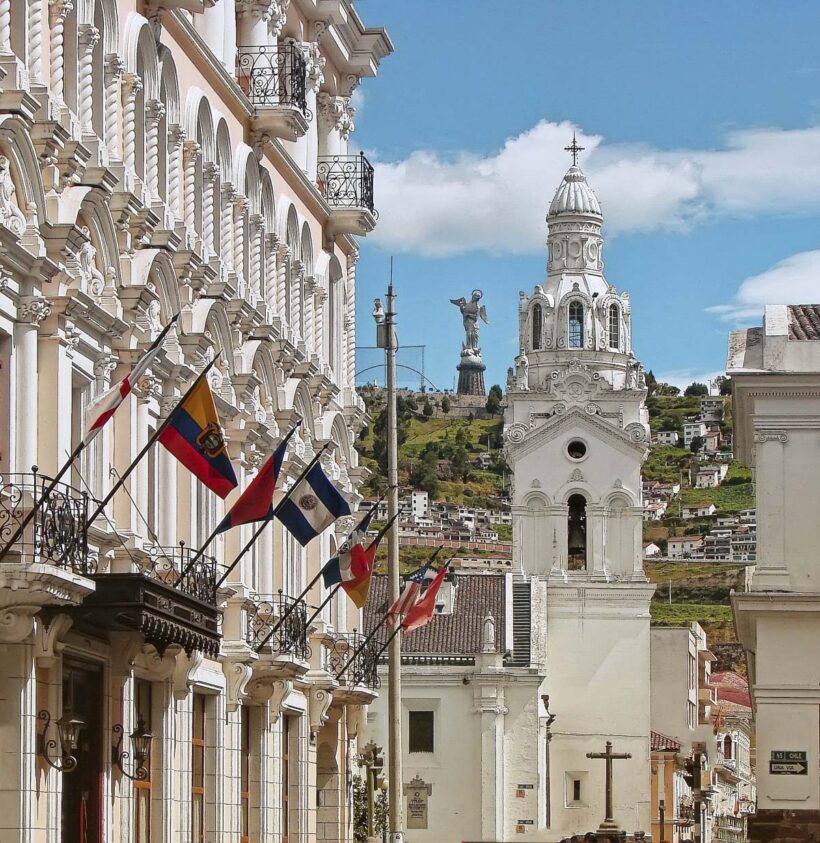Latin American leaders, dismayed by the wave of violence by armed groups, express solidarity with President Daniel Noboa.
By Lizzette Vela
The convulsive situation in Ecuador has provoked a cascade of reactions globally. Latin American governments, dismayed by the wave of violence unleashed by armed groups, express solidarity with President Daniel Noboa.
You can also read: López Obrador rejects violence in Ecuador; follow up on nationals
The country of Argentina stood out by offering security forces, its Minister of Security, Patricia Bullrich, considered the situation as a continental issue, so it reinforced its support in the fight against crime that defies the law.
Luis Almagro, secretary general of the Organisation of American States (OAS) in Uruguay, backed Noboa’s emergency measures and stressed the importance of the fight against organised crime within the framework of citizens’ rights.
Colombia, which has a direct border, has shown firm support for democratic institutions and repudiated the recent acts of violence. The government of President Gustavo Petro “hopes that the security situation will stabilise and public order will be restored”.
Peru, which also shares territorial borders with Ecuador, declared an emergency in its northern zone, condemned the acts that violate Ecuadorian rights.
Brazil, Chile and Bolivia expressed their preoccupation and solidarity in the face of the violent acts, while governments such as Costa Rica, Cuba, Panama, Paraguay, the Dominican Republic and Venezuela showed their attention and support for the judicial resolution against those responsible.
The Inter-American Commission on Human Rights (IACHR) monitors human rights during the state of emergency and stressed the need for extraordinary, justified and controlled military action.
The United States expressed Washington’s willingness to “provide assistance to the Ecuadorian government”.
Spain condemned the violence and supported democratic institutions, advising its citizens to exercise caution.
Mexico expressed its disagreement with the escalation of violence in Ecuador. President Andrés Manuel López Obrador expressed his solidarity and support for both the Ecuadorian people and government, and expressed his confidence in the prompt restoration of peace in that country.
The Mexican Secretary of Foreign Affairs offers help to repatriate its citizens in Ecuador.
What caused the conflict in Ecuador?
The background to this complex situation dates back to 2000, when Ecuador dollarised its economy, opening the door to numerous transnational businesses. Simultaneously, the initiation of Plan Colombia in the same year pushed drug trafficking groups towards the southern border, establishing ties with Ecuador.
However, the most marked presence of these groups is evident in 2017-2018, when drug trafficking activities and other cross-border crimes increased. What was once a relatively nonviolent territory has now become a hotspot for criminality, despite its neighbours with serious armed conflicts and drug trafficking, such as Colombia and Peru.
Since 2021, the security crisis has escalated significantly, evidencing the growing territorial power of armed groups linked to transnational crime. This phenomenon has manifested itself most forcefully in prisons.
Noboa’s arrival to power coincided with a crisis unleashed by these criminal gangs, which included the assassination of candidate Villavicencio. The newly elected president spoke of tough measures, militarisation and the construction of high security prisons, without foreseeing the strong reaction it would unleash among these organisations.
Conflict may transcend Ecuador’s borders
The NGO Insight Crime said that the iron fist policies have precisely generated a more violent reaction and that “now that Daniel Noboa has declared war, his escalation strategy has reached its peak, with no clear plan of action in case this war is prolonged”.
He pointed out that the persistent discussion on the designation of the armed conflict raises three crucial considerations:
- Fear among the population and the risk of a militarised escalation increase tension. The atmosphere of closures, deserted streets and the spread of fake news on social media generates a sense of state abandonment. Experts warn that these conditions could benefit transnational organised crime, fuelling violence and restricting freedoms under decrees of internal commotion and armed conflict, leading to abuses and undermining human rights.
- Uncertainty persists over security strategy in the face of a declaration of armed conflict. Analyses suggest that heavy-handed policies could exacerbate violence without a clear plan for a protracted war situation.
- The complexity of the problem beyond Ecuador’s borders is raised. The long-term consequences of this declaration may isolate the country and hinder the international coordination needed to address this transnational phenomenon. Regional and global collaboration is vital to confront criminal networks operating on an international scale, and joint measures are essential to counteract their impact in Latin America and the Caribbean.










